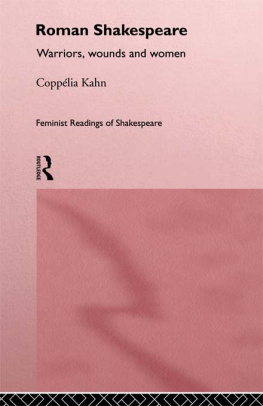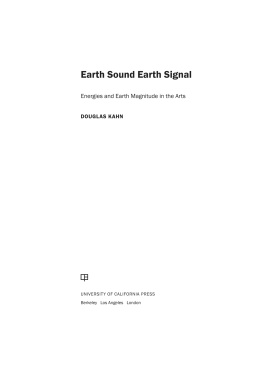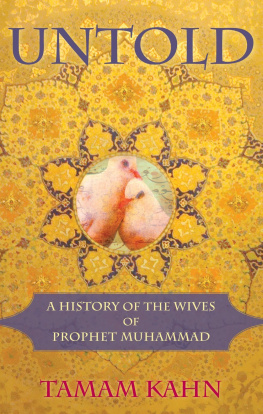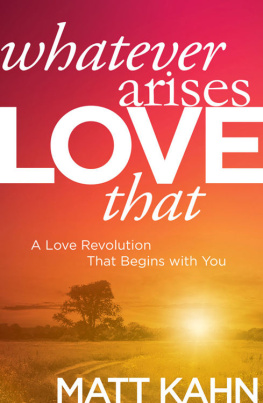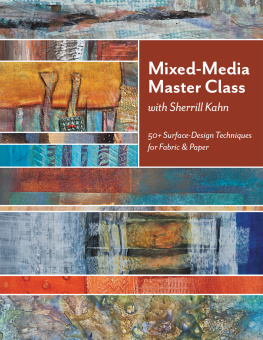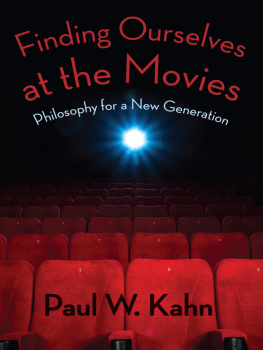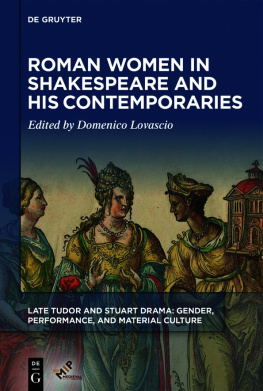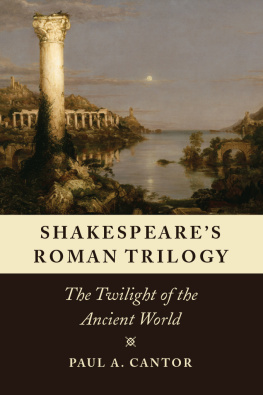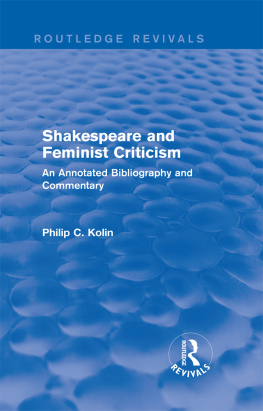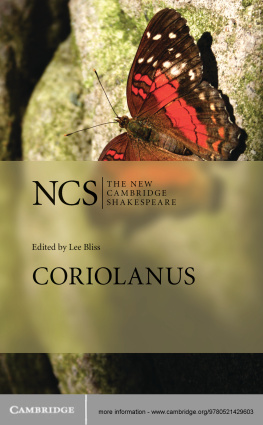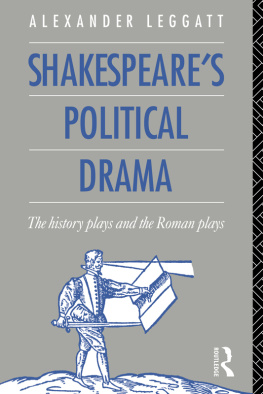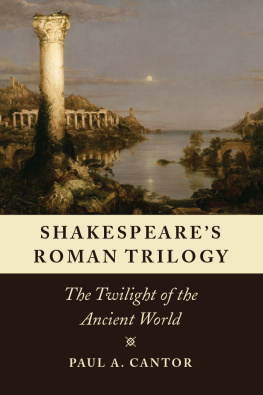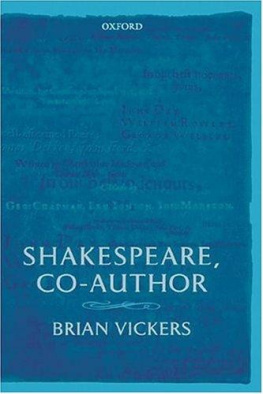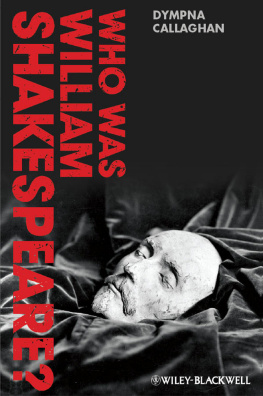

Centurion, Caesar's Palace, Las Vegas. Debased and commodified, the manly virtue identified with Romanness still has cultural currency in the late twentieth century, providing name recognition for a famous gambling casino in the Nevada desert. From Learning from Las Vegas, Robert Venturi, Denise Scott Brown and Steven Izenour.
FEMINIST READINGS OF SHAKESPEARE
Literary studies have been transformed in the last 20 years by a number of new approaches which have challenged traditional assumptions and traditional ways of reading. Critics of Shakespeare and English Renaissance literature have been at the forefront of these developments, and feminist criticism has proved to be one of the most important areas of productivity and change.
Feminist Readings of Shakespeare is a series of five generically based books by leading feminist critics from Britain, continental Europe and North America. Each book outlines and engages with the current positions and debates within the field of feminist criticism and in addition provides an original feminist reading of the texts in question. While the authors share a commitment to feminist values, the books are not uniform in their approach but rather exemplify the richness and diversity of feminist criticism today.
ENGENDERING A NATION: A FEMINIST ACCOUNT OF SHAKESPEARE'S ENGLISH HISTORIES
Jean E.Howard and Phyllis Rackin
ROMAN SHAKESPEARE: WARRIORS, WOUNDS, AND WOMEN
Copplia Kahn
ROMAN SHAKESPEARE
In the first full-length feminist study of Shakespeare's Roman plays Copplia Kahn brings to these texts a startling critical perspective which interrogates the gender ideologies that uphold Roman virtue.
Roman Shakespeare offers fresh, detailed readings of Lucrece, Titus Andronicus, Julius Caesar, Antony and Cleopatra, Coriolanus, and Cymbeline, examining the image of the wound as a fetish of Roman masculinity. Setting the Roman works in the dual context of the popular theater and Renaissance humanism, the author identifies new sources and analyses them from a historicised feminist perspective. Roman Shakespeare is written in an accessible style and will appeal to Shakespeare scholars and students and those interested in feminist theory, as well as Classicists.
Copplia Kahn is Professor of English at Brown University. She is coeditor of Changing Subjects: The Making of Feminist Literary Criticism and Making a Difference, and author of Man's Estate: Masculine Identity in Shakespeare.
First published 1997
by Routledge
11 New Fetter Lane, London EC4P 4EE
This edition published in the Taylor & Francis e-Library, 2002.
Simultaneously published in the USA and Canada
by Routledge
29 West 35th Street, New York, NY 10001
1997 Copplia Kahn
All rights reserved. No part of this book may be reprinted or
reproduced or utilized in any form or by any electronic,
mechanical, or other means, now known or hereafter
invented, including photocopying and recording, or in any
information storage or retrieval system, without permission in
writing from the publishers.
British Library Cataloguing in Publication Data
A catalogue record for this book is available from the British Library
Library of Congress Cataloguing in Publication Data
A catalogue record for this book has been requested
ISBN 0-203-40989-2 Master e-book ISBN
ISBN 0-203-71813-5 (Adobe eReader Format)
ISBN 0-415-05450-8 (hbk)
ISBN 0-415-05451-6 (pbk)
FOR GABRIEL
caro filio mio
and for
PHYLLIS
and
MARTY and NORMAN
CONTENTS
PLATES
.
.
.
.
.
SERIES EDITOR'S PREFACE
As I write this towards the end of 1996, feminist criticism of Shakespeare has just come of age. While we will no doubt continue to rediscover and celebrate notable pre-feminist and proto-feminist precursors, it is usually acknowledged that the genre as we know it began officially just 21 years ago with Juliet Dusinberre's Shakespeare and the Nature of Women (London: Macmillan, 1975), a book taken as the obvious starting-point by Philip C.Kolin in his Shakespeare and Feminist Criticism: An Annotated Bibliography and Commentary (New York and London: Garland, 1991) which lists 439 items from 1975 to its cut-off date in 1988. A glance at any publisher's catalogue will reveal that the rate of publication has certainly not slowed down during the eight years since then; it is clear in fact that feminist criticism continues to be one of the most lively, productive and influential of the current approaches to Shakespeare.
Shakespeare and the Nature of Women has just been reissued (London: Macmillan, 1996) with a substantial new Preface by Dusinberre entitled Beyond the Battle?. The interrogative mode seems appropriate both in relation to the state of feminist scholarship itself is the battle lost or won?and to the extent to which the whole enterprise has been about asking questions: asking different questions about the Shakespearean texts themselves and using those texts to interrogate women's place in culture, history, religion, society, the family. It seems to me that these questions are now inescapably on the agenda of academic enquiry, and that they have moved from the margin to the centre. The growth and variety of feminist approaches in Shakespeare studies has been complemented and supported by work in feminist theory, women's history, the study of women's relationship to language and the study of women's writing. A summary of the achievements of feminist criticism of Shakespeare in its first 21 years would for me include the following:
1Since Shakespeare and the Nature of Women looked at Shakespeare's works in the context of the history of contemporary ideas about women, drawing on non-literary texts to do so, feminist studies have contributed to the now widely accepted view that works of art can and should be treated within a social frame of reference.
2While sharing some features of their work with new historicist critics, feminist critics have also provided a critique of new historicism, notably by objecting to its neglect of gender issues and its concentration on male power relationships, and by resisting the conservative idea that subversion is a calculated form of license, always in the end contained.
3Feminist critics have changed what scholars and students read: there are many more texts by women of the Renaissance period available now, and more studies of women as writers, readers, performers, patrons and audiences. Publishers are responding to the demands of feminist critics and their students for more and different texts from those traditionally taught.
4Feminist critics have changed how we read: women readers no longer have to pretend to be men. Reading is seen as a complex interaction between the writer, the text and the reader in which the gender of the reader is not necessarily irrelevant.
5The performance tradition has been affected, with feminist approaches making new stage and screen interpretations possible. Supportive relationships exist between feminist scholars, directors and performers, and a female-centred study of Shakespeare in performance is burgeoning.
6Our perceptions of dramatic texts have been changed by work on women's access to language and women use of language. We are opening up the discussion of the gendering of rhetoric, public and private voices, the stereotypes of the bad vocal shrew and the good silent woman
Next page
